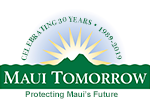This is from PATH who recently sued to prevent DLNR from closing a public trail.
Please read today’s Star-Advertiser editorial (below) about DLNR’s failure to act after PATH won ownership of Haleakala Trail, especially the Star’s concluding paragraph:
“From mauka to makai, Hawaii’s people deserve broad access to public lands. The DLNR should devote more resources to opening up the Haleakala Trail, and not squander the momentum of this noteworthy case.”
Do you agree? If so, let us know, and stand by for other ways you can help get DLNR to do the right thing — return true public access to Haleakala Trail.
Act now to open Haleakala Trail
• Honolulu Star-Advertiser
• June 16, 2015
It is distressing that the state Department of Land and Natural Resources has no timeline for reopening the historic Haleakala Trail for unguided hikes, despite a court ruling last year against the private landowner that had wrongly claimed the traditional public route as its own and the tentative settlement of a class-action lawsuit.
The nonprofit Public Access Trails Hawaii (PATH) has done the heaviest lifting in this important case, joined late by a state it first had to sue, and achieved a notable legal victory highlighting the importance of protecting the use of government-owned trails as a public trust asset.
Last year’s court ruling answered the core question of ownership — the state owns Haleakala Trail in fee simple and the trail is a public right of way — and laid the groundwork for settling a class-action lawsuit against Haleakala Ranch.
“All pedestrians who, as members of the public, have been, or continue to be, denied access to Haleakala Trail” are members of the class action, and have until June 17 to comment on the proposed settlement. A final hearing to confirm the deal is scheduled forJune 24 in Wailuku. For more information, see pathmaui.org.
The 3.3-mile Maui trail provides expansive views of the West Maui Mountains and the islands of Lanai and Molokai. It was a popular route to Haleakala for hikers and horseback riders through the 1930s, when it fell into disuse after an alternate route was built in 1935 to allow vehicular access to the mountaintop.
The trail crosses land owned by Haleakala Ranch before continuing through land that is part of Haleakala National Park. By early 2000, according to PATH, the ranch was claiming trail ownership and denying public access, prompting PATH’s 2011 lawsuit — which also correctly faulted the state for failing to assert its ownership. In 2013, the state joined PATH in the suit and was dismissed as a defendant, sharing the victory the following year in the first phase of the case, which confirmed state ownership under the Highways Act of 1892.
The pending settlement of the class-action lawsuit clears up some related issues, including assuring that Haleakala Ranch will not appeal the 2014 ruling or try to undo public ownership of Haleakala Trail through a land swap with state — both are positive developments. The settlement is a welcome one.
The proposed settlement does not, however, immediately open the trail to broader public access. That larger issue is to be negotiated between PATH and the state after the settlement is confirmed — which is why it is so discouraging that DLNR has designated no resources toward efforts necessary to reopen the trail for unguided outings.
The Division of Forestry and Wildlife “does not currently have funding and a timeline to complete that work,” according to a DLNR spokeswoman.
Only monthly, guided hikes are allowed now, a limited option that must not persist indefinitely.
The state must take a more active role in confirming public ownership of historic trails, and in making sure that hikers have access to them and are encouraged to use them — responsible, unfettered public use is the best way to ensure that public lands are not subsumed by adjacent private landowners.
The Haleakala Trail should not be “improved” to the point that it loses its natural appeal, an expensive and time-consuming undertaking that misses the point of the litigation. Rather, DLNR should focus on rapidly restoring unguided access to the trail as it is, talks that should include PATH and Haleakala Ranch.
The paramount importance of ensuring public access is well understood in the context of Hawaii’s coastal areas, especially when private landowners attempt to encroach on beach access by the general public. The conversation should be no different inland.
From mauka to makai, Hawaii’s people deserve broad access to public lands. The DLNR should devote more resources to opening up the Haleakala Trail, and not squander the momentum of this noteworthy case.



